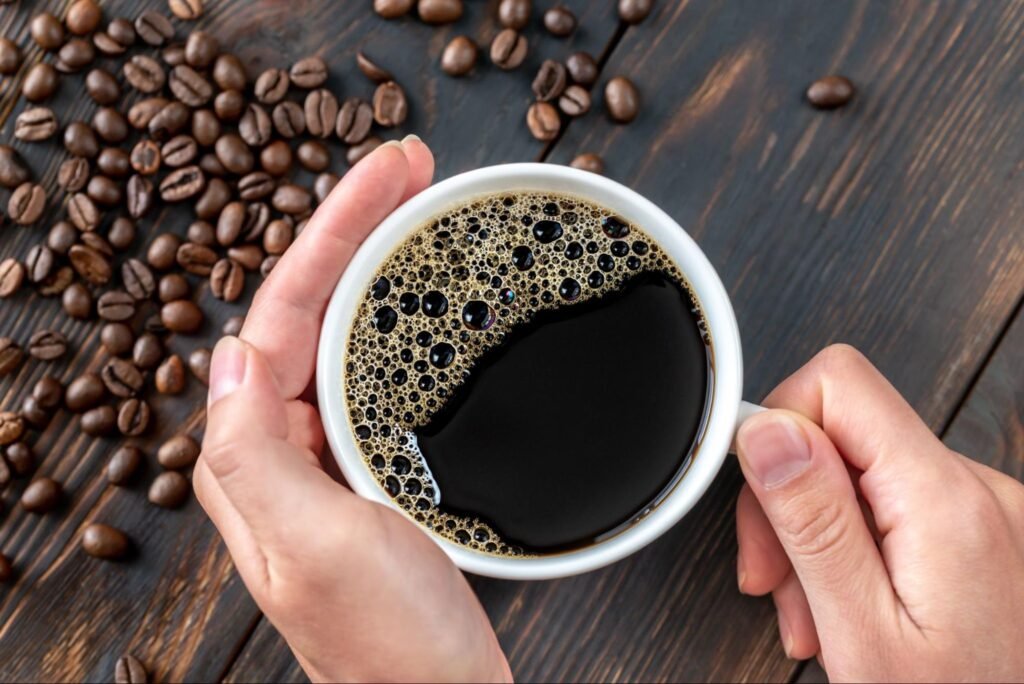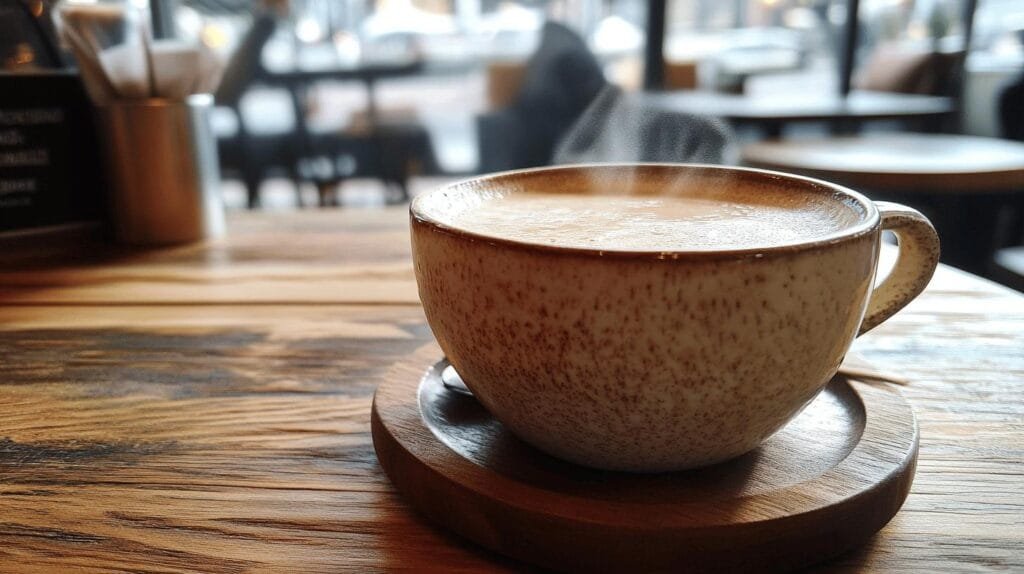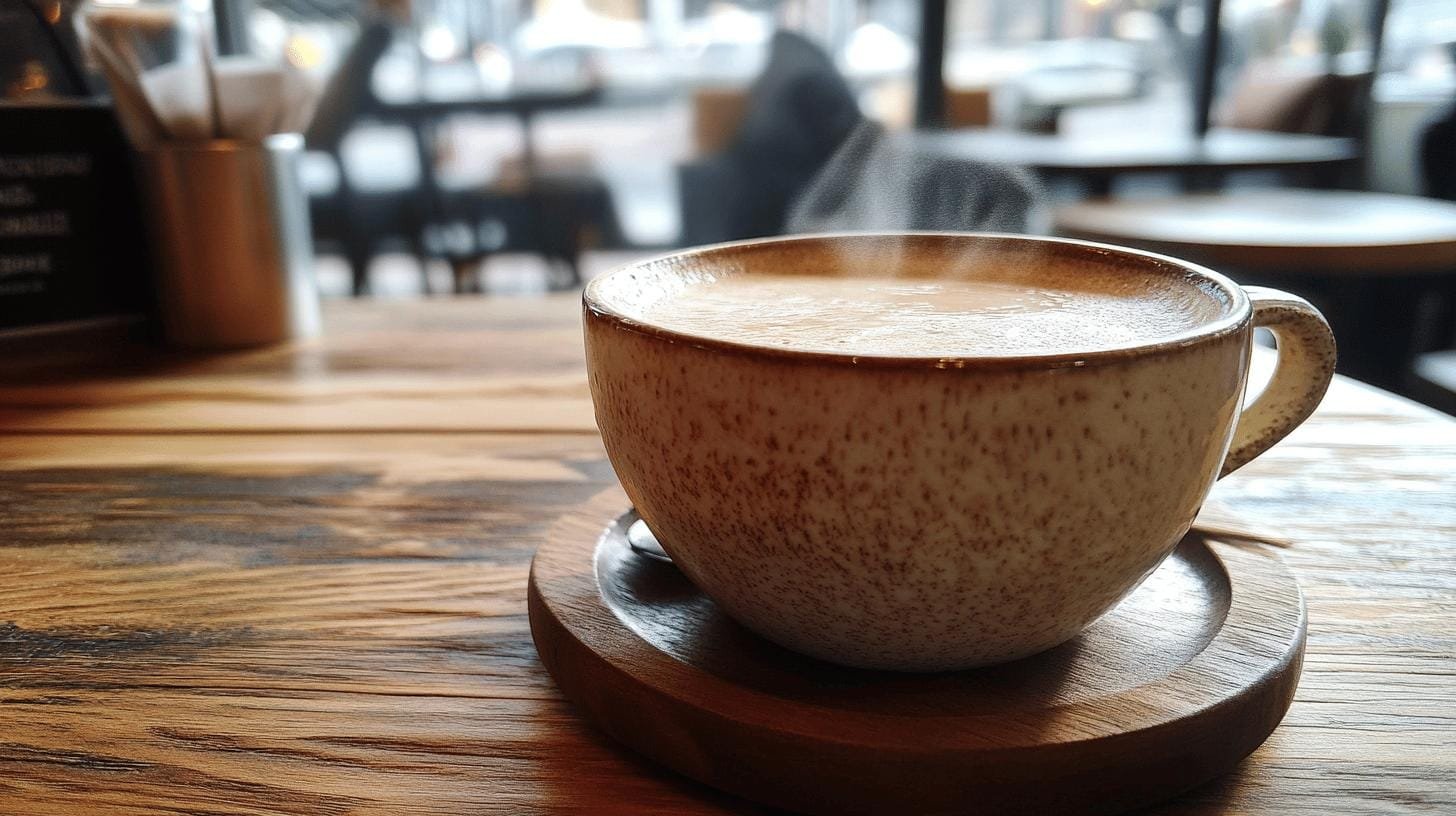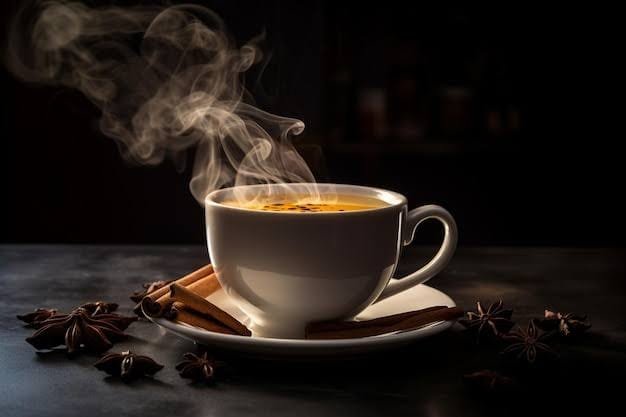
Emerging Approaches Redefining Craft-Focused Customer Experiences
Craft-focused small businesses have always relied on care, precision, and sourcing to stand out. What’s changing now is how those values are shown, not just

Is chai tea your afternoon pick-me-up or just a soothing ritual? For many, understanding the amount of caffeine in chai tea is crucial for balancing energy levels and relaxation. Chai tea contains approximately 20 to 60 milligrams of caffeine per 8-ounce serving, making it a flavorful yet milder alternative to some caffeinated beverages. This blog post will explore how the type of tea, brewing methods, and additional ingredients impact the caffeine content. Discover how chai tea compares to coffee and green tea, helping you make informed choices for your caffeine needs.

Chai tea usually contains between 20 to 60 milligrams of caffeine for each 8-ounce serving. The caffeine amount depends on the tea base, such as black or green tea, and factors like steeping time and tea-to-water ratio. Traditional Masala Chai, made with black tea, has caffeine levels similar to other black teas and falls on the higher end of this range. On the other hand, green tea-based chai typically has less caffeine. Changes in how you prepare it, like longer steeping or using more tea leaves, can increase the caffeine content.
Chai tea provides a milder caffeine experience compared to other drinks. For example, a standard 8-ounce cup of coffee has about 95 milligrams of caffeine, which is much higher than chai. This makes chai a good option for those who want less intense caffeine. In comparison, green tea has about 25 milligrams per serving, making black tea-based chai a bit stronger. Chai offers a balanced flavor with moderate caffeine, making it appealing to both tea and coffee fans.
Several factors affect the caffeine content in chai, such as the type of tea leaves, brewing techniques, and added ingredients. Black tea leaves generally have more caffeine compared to green tea leaves. The longer you steep the tea, the more caffeine is extracted. Additionally, a higher tea-to-water ratio leads to increased caffeine. Spices and other ingredients can influence how strong the caffeine feels, even if they don’t add more caffeine.
A chai latte combines chai tea with milk, creating a smooth and aromatic drink. It includes a concentrated chai tea blend, often made from black tea and spices like cinnamon, cardamom, and ginger. The tea base contains caffeine, while milk adds richness. The caffeine in a chai latte depends on the tea-to-milk ratio and the type of tea. Milk dilutes the caffeine, making it smoother than regular chai tea.
Caffeine levels in chai lattes vary based on preparation. More tea than milk will result in higher caffeine. Instant chai latte mixes might have less caffeine because they use different tea concentrations. Using black tea or a decaf or herbal option also changes caffeine levels. Other methods, like steeping time and temperature, influence caffeine content.
Chai tea has less caffeine than coffee. A regular 8-ounce cup of chai tea holds about 20 to 60 milligrams of caffeine, depending on the blend and how it’s made. Coffee has around 95 milligrams for the same amount, making chai tea a great pick for those wanting to cut down on caffeine. Chai’s mix of spices and lower caffeine offers a balanced drink compared to coffee’s strong kick.
Chai generally has a bit more caffeine than green tea. Green tea averages about 25 milligrams, whereas chai ranges from 20 to 60 milligrams, especially if black tea is used. This makes chai somewhat stronger than green tea but still lighter than coffee. The spices and moderate caffeine in chai create a balanced taste and caffeine strength.
Traditional techniques like steeping time and tea-to-water ratio greatly influence caffeine. Longer steeping increases caffeine extraction, making the tea stronger. The base tea type also matters; black tea usually has more caffeine than green. Increasing the tea-to-water ratio can further raise the caffeine content, creating a more potent chai.
Instant chai tea mixes typically have less caffeine than traditionally brewed chai. Designed for convenience, these mixes often use milder tea concentrations. Choosing decaffeinated or herbal tea bases in instant mixes also lowers caffeine levels. The water temperature matters too; hotter water extracts more caffeine.
Decaffeinated chai tea is popular for those who love chai but want less caffeine. Using decaf black tea keeps the classic taste with much less caffeine. Adjusting brewing time can lower caffeine further, suiting those sensitive to it.
Caffeine-free chai options can serve as low-caffeine alternatives. Rooibos-based spicy herbal chai is caffeine-free. Rooibos is naturally caffeine-free and is great for making chai with traditional spices like cinnamon, cardamom, and ginger. This choice maintains chai’s warmth and richness while ensuring no caffeine.

Chai is rich in antioxidants due to its tea base and spices. Polyphenols in black or green tea can combat oxidative stress and may reduce the risk of chronic diseases. Chai spices, such as cinnamon, ginger, and cardamom, offer anti-inflammatory and digestive benefits, promoting overall health beyond just caffeine.
Caffeine in chai gently boosts energy and alertness without the jolt of coffee. Chai’s moderate caffeine, with its soothing spices, provides a balanced energy uplift, helping maintain focus and relaxation. This makes it a good choice for both morning energy and afternoon calmness.
Those sensitive to caffeine can try decaffinated chai or tweak brewing to lower caffeine. Shorter steeping times or blends with less caffeine, like green tea-based chai, can help manage sensitivity. Herbal chai, such as rooibos blends, is caffeine-free yet keeps chai’s rich flavor.
Exploring the amount of caffeine in chai tea, its caffeine levels range from 20 to 60 milligrams per 8-ounce serving, influenced by tea type and brewing methods. Chai lattes introduce milk, altering caffeine content, while chai serves as a milder option compared to coffee. Understanding these variations enables informed choices for caffeine consumption. For those requiring adjustments, decaffeinated and herbal chai alternatives offer flexibility. Balancing caffeine intake with chai tea ensures enjoyment and aligns with personal health goals, making it a versatile and appealing beverage choice.
Chai tea contains 20 to 60 milligrams of caffeine per 8-ounce serving, while coffee has around 95 milligrams. This makes chai a milder alternative for those seeking less caffeine.
A Starbucks chai latte generally contains approximately 50 milligrams of caffeine for a standard serving. This can vary based on size and blend specifics.
Matcha typically has more caffeine, approximately 70 milligrams per 8-ounce serving, compared to chai tea’s 20 to 60 milligrams. This makes matcha stronger in caffeine content.
Chai tea’s caffeine content can increase alertness, potentially keeping one awake. With 20 to 60 milligrams of caffeine, its effect varies based on individual sensitivity.
Yes, Twinings Chai Tea contains caffeine as it is made from black tea leaves, which naturally include caffeine. The exact amount can vary.

Craft-focused small businesses have always relied on care, precision, and sourcing to stand out. What’s changing now is how those values are shown, not just

How can brands create a more balanced and memorable customer experience by blending artisanal product quality with thoughtful everyday rituals that keep people coming back?

Independent coffee shops have always been about more than caffeine—they’re hubs of creativity, connection, and care. As café culture continues to evolve, new trends are

Introduction Independent cafes win when they feel like the neighborhood’s living room and operate with the discipline of a great kitchen. Below is a quick

Discover how top specialty coffee brands create lasting loyalty through storytelling, sourcing, and community connection. Real tips from 6 industry experts.

Discover the ultimate showdown between two beloved coffee brewing methods: the French press and Chemex. Explore how each technique caters to distinct palates, with the French press delivering bold flavors and the Chemex presenting a bright, clean taste.

Unlock the secrets to brewing the perfect cup of coffee with our comprehensive guide on using a coffee scale. Discover how precise measurements enhance flavor and consistency while eliminating bitterness.

Discover how water temperature plays a vital role in brewing the perfect cup of coffee. This article delves into the ideal temperature range of 195°F to 205°F for optimal flavor extraction, enhancing the enjoyment of high-quality beans.

Discover the world of curated specialty coffee bundles, perfect for enthusiasts seeking quality and craftsmanship. This article explores the benefits of ethically sourced, small-batch beans from brands like Equipoise Coffee, offering diverse flavor profiles that elevate your brewing experience.